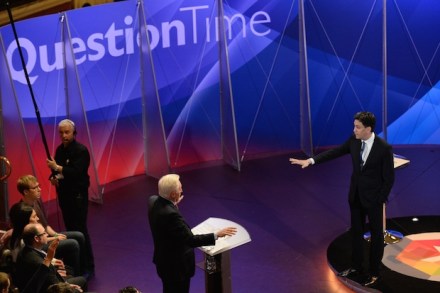Campaign kick-off: six days to go
By this time next week, the election will all be over and it will be a question of seats, leaderships and coalitions. With six days of campaigning left, today will be dominated by the fallout from last night’s Question Time special. David Cameron put in a good turn, Ed Miliband did not and Nick Clegg appeared to sail on through without much impact. To help guide you through the melée of stories and spin, here is a summary of today’s main election stories. 1. Miliband’s not sorry The special edition of Question Time last night with the three main party leaders was the best television of the campaign. Cameron, Miliband



















